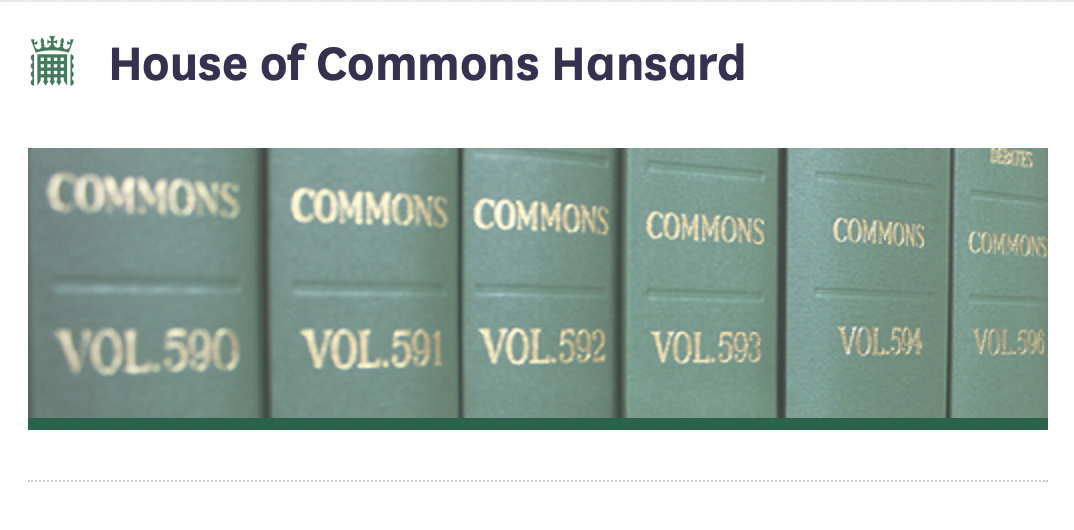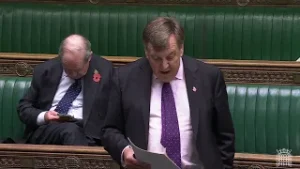2. Alex Chalk (Cheltenham) (Con): What steps his Department is taking to improve broadband coverage in Gloucestershire. [900096]
The Secretary of State for Culture, Media and Sport (Mr John Whittingdale): The Government have committed nearly £27 million to the roll-out of superfast broadband in Herefordshire and Gloucestershire. This should take superfast broadband coverage to an additional 130,000 homes and businesses across the two counties, providing almost 93% coverage by the end of 2017. Small and medium-sized enterprises in Gloucester and Cheltenham are now eligible for a grant of up to £3,000 to improve their broadband connectivity under the broadband connection voucher scheme.
Alex Chalk: I thank the Secretary of State for his answer. None the less, a significant number of homes and businesses in Cheltenham fall between two stools, being, apparently, not sufficiently rural for Fastershire to see fit to step in but too rural for commercial providers to consider it viable to extend broadband provision. Will he meet me to discuss how we can help those stuck in limbo and cut this Gordian knot?
Mr Whittingdale: First, I congratulate my hon. Friend on his election to this House and commend him on his efforts on behalf of his constituents in order that they should obtain superfast broadband. He will be aware that 96% of Cheltenham will already have access to it by the end of 2017, which is above the national target, and many small and medium-sized enterprises can also benefit from the broadband connection voucher I mentioned. We are examining ways of extending the reach beyond that 96%, but I would of course be happy to meet him and some of his constituents to discuss what more we might do to help.
Mark Spencer (Sherwood) (Con) rose—
Mr Speaker: Order. I note the ingenuity of the hon. Member for Sherwood (Mark Spencer), but Nottinghamshire is a little distance away from Gloucestershire and Herefordshire.
Mr Laurence Robertson (Tewkesbury) (Con): May I support the words of my hon. Friend the Member for Cheltenham (Alex Chalk) and remind the Secretary of State that many rural villages, certainly in my constituency, still do not have sufficiently strong broadband connections? That hampers people who are running small businesses from home, as well as children who are trying to use the internet to learn. What can he do to speed up the provision in those small villages?
Mr Whittingdale: I understand my hon. Friend’s concern for his constituents, particularly those in more rural areas. As he may be aware, under phase 1 of the broadband scheme we expect to reach 87.1% of premises across the whole of Herefordshire and Gloucestershire by December 2016, and under phase 2 we hope to extend that to 92.8%. Those in the more remote areas may still prove to be outside, and we will be looking at alternative means by which we can reach them with superfast broadband, but, again, I am happy to talk him further about this.
Superfast Broadband
3. Heidi Allen (South Cambridgeshire) (Con): What progress his Department is making on the roll-out of superfast broadband. [900097]
4 Jun 2015 : Column 733
The Secretary of State for Culture, Media and Sport (Mr John Whittingdale): More than 2.5 million additional homes and businesses now have access to superfast broadband as a result of the Government’s intervention. We continue to add 40,000 more homes and businesses every week.
Heidi Allen: I feel that I am about to gatecrash a party, but we have exactly the same situation in South Cambridgeshire. Connecting Cambridgeshire is doing a fantastic job of rolling out broadband across much of the constituency, but our roads are at gridlock—a happy consequence of our economic success—and it is vital that we keep people working in local hubs and from home. I, too, am interested in what other technologies we might explore to reach those people who are missing, so please may I come along too?
Mr Whittingdale: I congratulate my hon. Friend on her election and she is a very welcome party guest. The Government are investing more than £8 million in Connecting Cambridgeshire, which will increase coverage in her constituency to 94% by 2017. As she pointed out, there will be some areas that are much harder to reach and it might not be possible to do so by the traditional methods, so we are running pilot projects to explore other ways in which we can bring coverage up to reach even the furthest parts of her and other hon. Members’ constituencies. I would be happy to talk to her further.
20. [900114] Nigel Mills (Amber Valley) (Con): Further to that answer, what more can we do to support alternative ways of delivering broadband, such as that offered by W3Z in my constituency, which can provide high-speed broadband to the most rural homes and can get it to them far quicker than fibre broadband will?
Mr Whittingdale: My hon. Friend is completely right that although fibre will, we hope, supply superfast broadband to the overwhelming majority of premises in the country there will be some for which it is not practical. That is why we are piloting alternatives through our three pilot projects testing fixed wireless technologies in rural areas in North Yorkshire, North Lincolnshire and Monmouthshire. These are being run by Airwave, Quickline and AB Internet. We will consider the results to assess the best way of extending the programme still further into the most difficult areas.
18. [900112] Matt Warman (Boston and Skegness) (Con): One of the issues that remain for the people who will not get superfast broadband via fibre is that it is very hard to find out from BT or local councils that they will definitely not get it. Our programme has made remarkable progress, but would the Secretary of State like to see BT and local councils providing much greater clarity to communities so that they can explore other technologies such as microwave, wi-fi or satellite?
Mr Whittingdale: Again, I congratulate my hon. Friend on his election. I know that in his capacity as a former technology editor he brings a particular expertise to our debates on this subject. He is absolutely right that there will be some cases where, for the time being, it will not be possible to extend superfast broadband. I hope that we will eventually be able to do so, but in the meantime I entirely agree with him that it is important that people should be aware of that position. We are introducing a seven-digit postcode checker, which is now on the gov.uk website, so that people can be made aware of that position.

